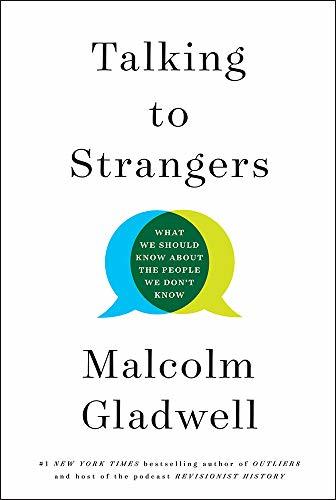Talking to Strangers Book Summary
What We Should Know About the People We Don’t Know
TL;DR
In "Talking to Strangers", Malcolm Gladwell investigates how our interactions with unknown individuals often go awry, examining real-life examples to reveal biases and misunderstandings that lead to conflict and tragedy.
What is Talking to Strangers about
Malcolm Gladwell's "Talking to Strangers" delves into the complexities of human interaction and the misunderstandings that arise when we engage with those we do not know. Through a series of compelling case studies, including notable figures and events like Fidel Castro's deception of the CIA and the complexities surrounding the Amanda Knox trial, Gladwell argues that our ingrained biases and simplistic interpretations often lead to dire consequences. By emphasizing the gulf between appearance and reality, the author explores the need for greater caution and empathy in our interactions, urging readers to reconsider how they approach strangers. Gladwell's approach combines storytelling with psychological insights, making the book both engaging and thought-provoking.
Talking to Strangers 8 Key Takeaways
Misinterpretation of behavior is common.
Gladwell highlights how our preconceived notions can skew our understanding of strangers' actions, leading to misjudgments and conflict.
The importance of context in communication.
Context shapes interactions; without understanding the background of a stranger, our interpretations may lead to errors.
Cognitive biases influence our perceptions.
Gladwell discusses how biases such as confirmation bias can distort our view of strangers, making us prone to misunderstanding.
Real-life examples illustrate tragic outcomes.
The book uses case studies, like the tragic story of Sandra Bland, to illustrate the consequences of miscommunication.
Trust and deception in relationships.
Examining historical figures, Gladwell notes how misplaced trust can lead to dangerous outcomes, as seen with Neville Chamberlain's trust in Hitler.
The role of empathy and humility.
Gladwell urges readers to adopt a mindset of empathy and humility when interacting with strangers to mitigate misunderstandings.
Societal structures affect interactions.
The book explores how cultural and societal norms shape our responses to strangers, making it vital to consider their influence.
Understanding strangers requires effort.
Gladwell emphasizes the need for deeper engagement to comprehend the complexities of others, rather than relying on superficial judgments.
Top Talking to Strangers Quotes
- "We can’t know what strangers think unless we listen to them."
- "The biggest problem with communication is the illusion that it has been accomplished."
- "We are not good at judging strangers; we must acknowledge that our interpretations are often flawed."
Who should read Talking to Strangers?
This book is ideal for readers interested in psychology, social dynamics, and interpersonal communication. Those seeking to understand the deeper implications of their interactions with strangers will find valuable insights and tools for fostering better connections in an increasingly polarized society.
Talking to Strangers Best Reviews
- "A captivating exploration of the communication gap between strangers that delves into human psychology in a riveting manner." – The New York Times
- "Gladwell's storytelling prowess combined with rigorous analysis makes this a compelling read for anyone interested in social dynamics." – The Guardian
- "An eye-opening book that challenges our assumptions about strangers and highlights the need for greater understanding in our polarized world." – NPR
People also liked these summaries
Talking to Strangers FAQs
What is the main theme of "Talking to Strangers"?
The main theme revolves around the misunderstandings that arise during interactions with strangers and how biases influence our perceptions.
Is "Talking to Strangers" based on real events?
Yes, Gladwell uses real-life case studies and examples to illustrate his points about communication and interaction.
What can readers learn from this book?
Readers can learn about the psychological factors that affect interpersonal communication and gain insights into fostering better understanding with strangers.
